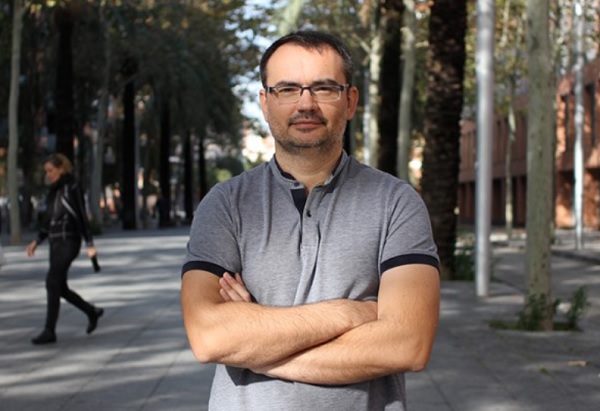 Prof Jordi Cabot;
Credit: LIST
Prof Jordi Cabot;
Credit: LIST
The Luxembourg Institute of Science and Technology (LIST) has reported that one of its researchers was recently awarded the PEARL Chair by Luxembourg's National Research Fund (FNR).
The FNR awarded the €3 million grant to Prof Jordi Cabot, who leads the Software Engineering RDI unit at LIST, to set up and coordinate the BESSER (BEtter Smart Software fastER) project in collaboration with the Interdisciplinary Centre for Security, Reliability and Trust (SnT) of the University of Luxembourg.
Launched on 1 April 2023, BESSER is set to become the world’s first open source intelligent low-code platform, according to LIST. BESSER will enable professional software engineers but also ordinary citizens and developers to model, generate, personalise and deploy the smart and complex software systems demanded by society, industry and public administration.
The project has received a funding of €3 million via the FNR PEARL programme, which offers grants to attract leading researchers in strategic research fields to Luxembourg.
LIST noted that a significant digital transformation is underway, disrupting all organisational activities and processes. To fully leverage the opportunities provided by this digital revolution in every business sector, organisations must adapt. LIST added that software is the infrastructure that powers this transformation, making the ability to produce high quality software a strategic economic capability. However, software development is in a state of constant crisis. Despite improvements in tools, languages, and methods, they have not been able to keep up with the increasing complexity, demands and trust expected from running software.
It is thus essential, according to LIST, to build better software faster. More often than not, such software systems need to be intelligent and have AI-based components embedded. This is what is called "smart software".
BESSER has been created with this context in mind. A low-code platform for generating smart software, it is expected to empower developers and non-tech people alike to create better and smart software faster, ultimately resulting in greater societal value. The BESSER platform will also integrate the latest advancements in generative artificial intelligence (AI) technologies to provide virtual assistants that will be able to help them in all phases of the software life cycle.
According to LIST, low-code application platforms accelerate app delivery by dramatically reducing the amount of hand-coding required. By focusing on the modelling of the data and the behaviour of software systems, users of low-code platforms can automate the generation of most of the application code, thus significantly reducing the amount of time and resources required to create new applications.
LIST added that the development and massive adoption of BESSER is fully aligned with both the research and technology organisation itself and the national strategic priorities: significantly improving Luxembourg's competitiveness by reducing the time-to-market of its products and services and enhancing their ability to incorporate complex features.
"There is a clear demand for this type of software," explained Prof Jordi Cabot. "But also, a lack of skilled people to develop it, which may affect, for instance, the competitiveness of EU companies on one side and the user experience of any individual that could benefit from the existence of such software."
Francesco Ferrero, Director of the IT for Innovative Services department at LIST, commented: "Software is becoming a true foundation of modern society. It is disrupting century-old industries, such as car manufacturing, and is itself being disrupted by new discoveries such as generative AI models. Jordi and the BESSER project will contribute to position Luxembourg and the LIST as a global centre of excellence in the future of software. I am thrilled at the perspective of being part of this journey."
Marc Schiltz, CEO of FNR, added: "I am glad that we could convince Prof Jordi Cabot to develop his research and innovation activities at LIST through an FNR PEARL Chair. His work on smart software generation, leveraging AI advancements, has ground-breaking potential and will further reinforce Luxembourg's position in this important area."








